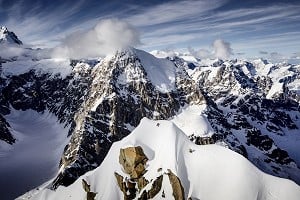In reply to sethmford:
another for dont drop out now.
whatever international guide qual you go for will still be several years away, and if any job needs another string to its bow its guiding.
economies are changing which has affected guiding, which was already a saturated field for earning real money (unless you went beyond just guiding and got into other aspects of industry).
also: international guiding quals are still hard work. if this is about workload, expenses, outcomes etc then dont think youve found a way out. learning, training, assessments, refreshers, the novice years, logging hours etc all adds up. and never forget its a job qual - youre not there to just mess about. plenty fail or drop out, or deferr and dont come back.
basically its a uni level of learning for what is essentially a manual labor qual for a marginal market. think about that.
id argue that guiding indeed only works well with another parallel career. i know lots of IMGs who either have other careeers or who do little old lady stuff between seasons. it takes years to get to the point of making good money, and then the peak years are not going to last forever. its a slow career path to develop due to its seasonal nature. fine as something you do for half the year, but hard if you want the other half to be your own climbing, harder still if you have family.
a way thru it that many go with is to either specialize in something/somewhere no one else is doing, or to be involved in other parts of the climbing industry that may not involve climbing (managing climbers lodges, gear production, industrial rigging etc).
if this is just to live a climbing life its not the only way. you will have more freedom working in a related job that either has you near the climbing area, gives you access to it, or gives you long holidays - all with decent pay.
my own path has been to do the training modules, including other aspects of specialist training, but ive never been to half the assessments as i dont climb in places where either the assessments or the quals are granted relevancy. its the pirate-path, but 6 years in im making more money than friends who have been IMGs for decades and who struggle in what is really a limited ambit.
get into guiding because you like guiding, ie the people management stuff, the guiding lifestyle, the volume of time spent doing it - but dont get into it as a sole career if you want to climb serious stuff. theres better ways to do that. guiding is still a job - you have to work, its not paid climbing. 50% of guiding isnt climbing, and theres lots of industry/scene bullshit you many not be into.
all said, as a young persons thing its great for a few years. really makes you think. but as the saying goes 'the only thing harder than getting into guiding is getting out of it'.
you wont regret having having other options, especially hard earned ones









